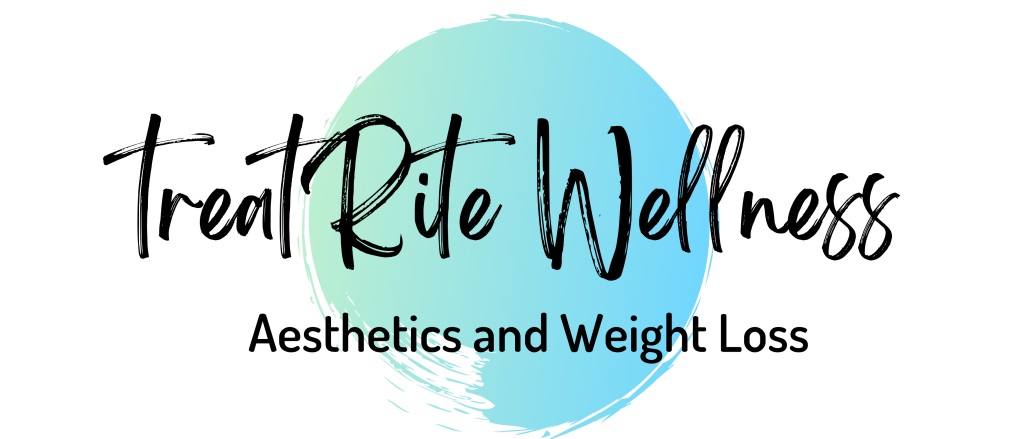Weight loss during perimenopause and menopause is challenging due to complex hormonal and metabolic changes. Declining estrogen levels contribute to increased abdominal and visceral fat, reduced resting metabolic rate, and loss of lean muscle mass. These changes are compounded by alterations in leptin and insulin signaling, leading to increased appetite, insulin resistance, and a higher propensity for fat storage, even when dietary and exercise habits remain unchanged.[1-4]

Hormone replacement therapy (HRT) may modestly improve body fat distribution and metabolic parameters when prescribed for menopausal symptoms, but it is not recommended as a primary treatment for weight loss or central obesity in midlife women, as emphasized by the International Menopause Society and supported by the medical literature.[1][4] GLP-1 receptor agonists, such as semaglutide, are effective pharmacologic options for weight loss and may be considered in peri- and postmenopausal women with obesity, although data specific to this population are limited and further research is needed to clarify their optimal use and safety profile.[5]
First-line management should focus on lifestyle interventions. Strength training and increased protein intake are essential to preserve muscle mass and support metabolic health. Optimizing sleep hygiene is important, as sleep disturbances are common and can exacerbate metabolic dysfunction. Adequate intake of micronutrients, including calcium, vitamin D, and magnesium, is recommended to support bone and metabolic health during this life stage.[6][7][8] A multidisciplinary, patient-centered approach that addresses nutrition, physical activity, behavioral modification, and sleep is most effective for long-term metabolic health in perimenopausal and menopausal women.[7-8]

This isn’t your fault. We have a solution
You are not broken. Your body is evolving, and you deserve strategies that evolve with it, our medically guided programs that are designed specifically for women navigating midlife hormonal shifts. We combine functional nutrition, hormone optimization, and evidence-based weight loss medications and personalized support to help you finally break through the plateau
Ready to reclaim your metabolism?
Book your free consultation with a hormone and weight loss specialist at TreatRite Wellness. Let’s create a personalized plan that works with your body, not against it.
References
- Kapoor E, Collazo-Clavell ML, Faubion SS. Weight gain in women at midlife: a concise review of the pathophysiology and strategies for management. Mayo Clin Proc. 2017;92(10):1552-1558. doi:10.1016/j.mayocp.2017.08.004
- Marlatt KL, Pitynski-Miller DR, Gavin KM, et al. Body composition and cardiometabolic health across the menopause transition. Obesity (Silver Spring). 2022;30(1):14-27. doi:10.1002/oby.23289
- Ko SH, Jung Y. Energy metabolism changes and dysregulated lipid metabolism in postmenopausal women. Nutrients. 2021;13(12):4556. doi:10.3390/nu13124556
- Fenton A, Smart C, Goldschmidt L, Price V, Scott J. Fat mass, weight and body shape changes at menopause – causes and consequences: a narrative review. Climacteric. 2023;26(4):381-387. doi:10.1080/13697137.2023.2178892
- Mikdachi H, Dunsmoor-Su R. GLP-1 receptor agonists for weight loss for perimenopausal and postmenopausal women: current evidence. Curr Opin Obstet Gynecol. 2025;37(2):97-101. doi:10.1097/GCO.0000000000001015
New Research
- Erdélyi A, Pálfi E, Tűű L, et al. The importance of nutrition in menopause and perimenopause: a review. Nutrients. 2023;16(1):27. doi:10.3390/nu16010027
- Lowy L, Kasianchuk A. Menopause, weight, and metabolic health – considerations for a patient-centered, multidisciplinary approach. Curr Opin Obstet Gynecol. 2023;35(2):176-181. doi:10.1097/GCO.0000000000000848
- Khandelwal S. Obesity in midlife: lifestyle and dietary strategies. Climacteric. 2020;23(2):140-147. doi:10.1080/13697137.2019.1660638
